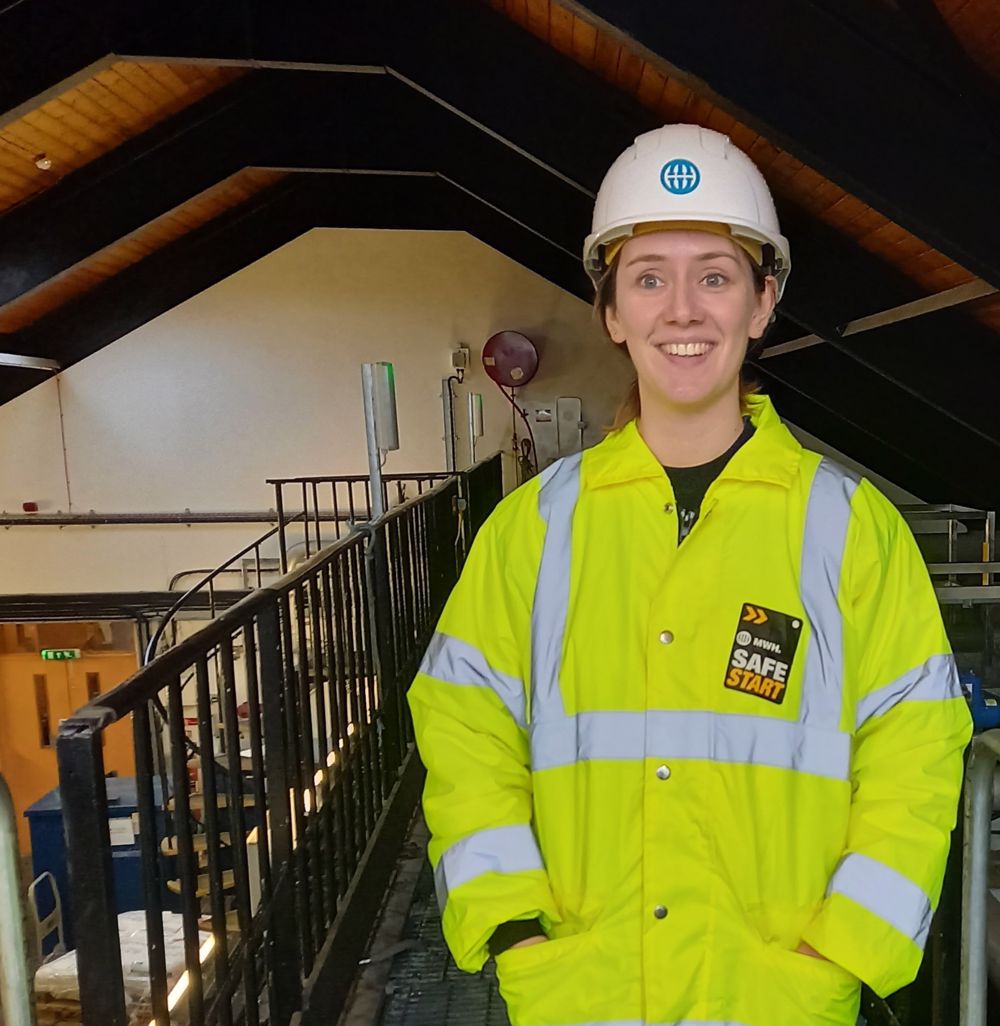Safety is my job
Sophie Horne gained a MEng in Chemical Engineering with Energy Engineering at Heriot Watt University in 2018. She is an Associate Member of the Institution and works in the water industry as a Graduate Process Engineer with MWH Treatment.

Sophie, Can you describe the part process safety plays in your job?
I work within a multi-disciplinary project team. In my designs I am always challenging myself to produce inherently safer solutions such as liaising with the electrical engineer to simplify the control, whilst still incorporating layers of protection
Taking the process design to a hazard assessment provides a fantastic opportunity to engage with the operations team and often we find that what works on paper is not always the best for the operators and the site specific needs.
What do you enjoy most about your job?
The most interesting part of my job has been getting to see an operational site, visualising the process units shown on a P&ID. I’ve yet to go and see a site that I’ve helped to design but, hopefully, that’s not too far off.
Is there an achievement that you are pleased with?
During a HAZOP it became clear that there were historic problems with existing equipment, resulting in a complete revision. The satisfaction of stripping the project back to basics and producing a better design made it worthwhile.
What skills and experience have been key to your work in Process Safety?
Acting as a scribe at HAZOPs allowed me to gain technical knowledge as well as insight into the calibre of process designs required. It also taught me how to effectively communicate to different members of the team, so we all have an understanding of the process design.
What Process Safety challenges are faced by the water industry as we move towards ‘Net Zero’?
Although the water industry doesn’t appear as the most glamorous, it’s at the forefront of society’s challenges such as reducing eutrophication as well as maintaining rigorous standards as new technologies come through. I was lucky enough to go to Minworth THP (Thermal Hydrolysis Plant – essentially a fancy pressure cooker for sludge) which is Severn Trent’s largest sewage treatment works. Yes, I am aware I’ve used “lucky” and “sewage” in the same sentence! The THP plant gives the site the ability to create natural gas which can be delivered back into the grid.
Additionally, value engineering and process intensification are going to be crucial in moving our designs towards net zero.
What led you to choose a career in Chemical Engineering?
Chemical engineering is the perfect mix of learning why and how things work and to propose different solutions. Being a member of the Institution has provided opportunities to learn across a wide range of topics.
Do you have any advice for someone thinking of working in Process Safety?
Do it! Process safety gains from a variety of perspectives. Fresh minds always bring that, whether you’re straight out of university, college or coming in from another role.